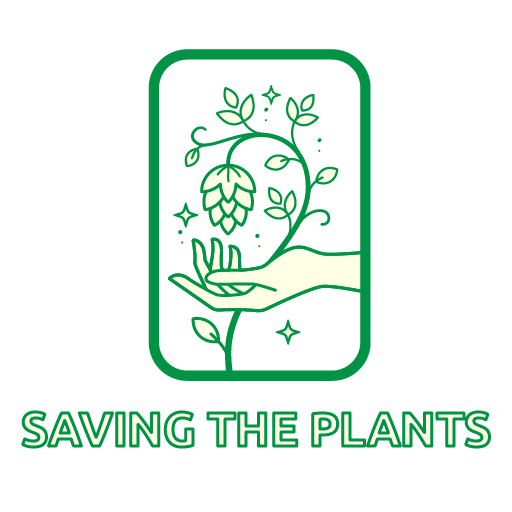Cocaine withdrawal is an intense process that can challenge both the body and mind. When someone stops using cocaine after a period of dependence, their brain and body need to adjust to functioning without the drug. This adjustment period often brings about a range of uncomfortable withdrawal symptoms. Understanding what to expect and how to manage these symptoms is crucial for individuals going through withdrawal, as well as for caregivers supporting them.
What Causes Cocaine Withdrawal?
Cocaine acts as a powerful stimulant, flooding the brain with dopamine, a neurotransmitter associated with feelings of pleasure and reward. Over time, the brain becomes accustomed to this increased dopamine activity. When cocaine use stops, the brain struggles to regulate dopamine levels, which can result in a crash, or what is known as withdrawal. The intensity and duration of cocaine withdrawal symptoms often depend on the individual’s history of use, including how long they’ve been using and how much cocaine they typically consumed.
Common Symptoms of Cocaine Withdrawal
Cocaine withdrawal doesn’t present the same physical symptoms that come with other substances like alcohol or opioids. However, the psychological and emotional symptoms can be severe. Here are the most common symptoms:
- Fatigue and Sleep Disturbances: One of the first symptoms many people experience is overwhelming fatigue. The body, having been overstimulated by cocaine, now craves rest. People may sleep excessively, sometimes for days, or they may experience insomnia.
- Depression: Cocaine significantly impacts mood regulation. Without the drug, individuals may feel deeply depressed, often accompanied by feelings of worthlessness or hopelessness. In some cases, this depression can lead to suicidal thoughts.
- Intense Cravings: As the brain craves a return to the dopamine spikes caused by cocaine, individuals often experience intense cravings for the drug. These cravings can be triggered by reminders of past use, stress, or even boredom.
- Anxiety and Agitation: Withdrawal can bring about feelings of restlessness, anxiety, and general irritability. For some, the anxiety may manifest as panic attacks.
- Increased Appetite: Cocaine often suppresses appetite, so when withdrawal begins, individuals may find themselves overeating or craving unhealthy foods.
- Cognitive Impairment: It’s common to feel mentally “foggy” during withdrawal. Individuals may struggle with concentration, memory, and decision-making.
Duration of Cocaine Withdrawal
The timeline for cocaine withdrawal varies depending on factors like the duration of use, the amount consumed, and the individual’s overall health. Typically, the withdrawal process can be divided into three phases:
- Crash (Days 1-3): During this initial phase, individuals may feel fatigued, anxious, and irritable. Intense cravings are common as the body adjusts to the lack of cocaine.
- Withdrawal (Days 4-7): This phase often includes the most intense symptoms, including severe depression, mood swings, and continued cravings.

- Sleep patterns may be disturbed, and individuals may struggle to manage their emotions.
- Extinction (Weeks 2-4 and Beyond): While the most severe symptoms usually fade after the first week, cravings can persist for months. This phase is marked by intermittent waves of emotional and psychological symptoms, especially in response to triggers.
Managing Cocaine Withdrawal
Although withdrawal can be difficult, there are several strategies that can help individuals manage the symptoms more effectively. Proper support, both medical and emotional, is essential for a successful recovery. Below are some key approaches to managing cocaine withdrawal:
- Seek Professional Help: Medically supervised detox is often recommended, especially for individuals with a history of heavy cocaine use. Physicians can provide medications to manage symptoms like anxiety and depression, as well as monitor for any potential complications.
- Therapy and Counseling: Cognitive-behavioral therapy (CBT) is a powerful tool in addressing the psychological aspects of cocaine withdrawal. Therapists help individuals develop coping strategies to manage cravings, address emotional distress, and rebuild their lives in sobriety. Group therapy and peer support groups like Narcotics Anonymous (NA) can also offer emotional support and encouragement.
- Healthy Lifestyle Habits: Building a routine around exercise, proper nutrition, and adequate sleep is critical. Exercise, in particular, helps boost endorphins, which can elevate mood and reduce cravings. A balanced diet, rich in vitamins and minerals, aids the body’s recovery process and helps restore overall well-being.
- Mindfulness and Stress Management: Techniques like meditation, deep breathing exercises, and yoga can reduce anxiety and promote emotional stability during withdrawal. These practices help individuals stay grounded and calm, making it easier to manage triggers and stressful situations.
- Avoiding Triggers: During withdrawal, it’s essential to stay away from people, places, or activities associated with past cocaine use. Building new habits and avoiding high-risk situations can make a significant difference in preventing relapse.

- Medications: While there are no FDA-approved medications specifically for cocaine withdrawal, doctors may prescribe antidepressants, anti-anxiety medications, or sleep aids to alleviate specific symptoms. Some research is also exploring medications that target dopamine regulation in the brain, potentially easing cravings and mood disturbances.
Long-Term Recovery from Cocaine Addiction
Cocaine withdrawal is just the first step in the recovery journey. Long-term success often requires ongoing support, either through therapy, peer groups, or rehabilitation programs. Relapse is a common part of recovery, but each setback offers an opportunity to reassess strategies and strengthen one’s commitment to sobriety.
For many, recovery is a lifelong process of maintaining a drug-free lifestyle while learning to cope with triggers and stressors in healthy ways. Building a strong support network and developing a personalized self-care plan are essential components of long-term sobriety.
Conclusion
Cocaine withdrawal is a challenging but manageable process. Understanding the symptoms and knowing how to address them can make a significant difference in the recovery journey. With the right support, individuals can overcome the difficulties of withdrawal and begin the path to a healthier, cocaine-free life. Whether through professional treatment or community support, every step taken toward recovery is a step toward reclaiming control and achieving long-term well-being.


